#vanya reviews
Explore tagged Tumblr posts
Text
why is anora the least developed character in the film called anora?
who is she? what are motivations? what are her interests? why is she so desperate to stay married to vanya? why does she even love vanya? why does she think vanya's orthodox parents will accept her when the only reason he married her was to piss them off? what was her life like before vanya?
we just do not know.
#anora movie#anora 2024#anora mikheeva#mikey madison#sean baker#vanya zakharov#ivan zakharov#movie review#movie discussion#movie discourse#discourse#someone explain
17 notes
·
View notes
Text
Here it is y'all: That One Fanfiction That Ruined Me
Fic name: "Poets Are Not To Blame"
Author: Nevermour on AO3
Status: Book, completed
Word count: 272,260
Fandom: The Umbrella Academy (TV show)
_/10: 14/10 STARS, MY GOSH 🌟⭐️✨
A reminder to my precious french fries! Make sure you check the tags thoroughly! While this fic is really accurate to canon-typical violence, it might not be for you. This fic contains violence, drugs, drinking, torture, and physical abuse. If you feel uncomfortable when reading, then stop and take care of yourself 💖
Five Hargreeves was heartbroken and furious the first time he time-travelled. The girl he had given his heart to had broken his trust, and so, he recklessly jumped forward in time. Uncaring of any consequences. Now, after 41 years spent in an apocalyptic wasteland, he found his way back to her. It doesn't matter that she isn't happy to see him. Five was back, and he was going to save the world and the girl he loved from the apocalypse.
This fanfic. This is the fanfic that absolutely ruined me. I binged this shit within a WEEKEND, I LOST SOME SLEEP OVER THIS FIC.
And it was sooooo worth it 😎
This is, hands down, THE BEST fanfiction I've read in a while. It's so well-written, it feels like something that should be published. I legitimately felt like I was watching the show for the first time again, and IT WAS AMAZING. I loved getting to see how Nevermour handled the reorganizing of the plot/timeline while simultaneously staying true to the original content! Nevermour definitely put their own twist on one of my favorite tv shows, and I loved it so. Much. The hard work they put into this fanfiction really shines through, and I absolutely adore seeing it.
I also loved the romance between Five and Natalia, it was equal parts sweet, beautiful, and melancholic. The amount of longing adoration between them almost had me to the point of tears several times, like damn 🥲
There is a sequel under way for this fic, and I cannot wait to read that either! Nevermour has put seasons 2, 3, and 4 in that one, and it is taking them a little longer to complete it due to their decision to completely rewrite season 4. I completely agree with this decision lol, so I'll most definitely be playing the part of a patient girly!
Thank you for your hard work Nevermour, you're definitely deserving of as much praise as you can get! 14/10, if I could leave a kudos for every chapter, I definitely would 💖
If you're interested in reading this fanfiction for yourself, I'll leave the link here so you can what the hype is all about: https://archiveofourown.org/works/48346546/chapters/121935352
Y'all lmk if you're just as ruined as I was by the end, just be mindful of spoilers! Have a lovely day french fries,
Potato, OUT!
#words#posts#spread the love#staymie reviews#recommendations#long reads#reading#fanfic rec#fanfic#fanfiction#ao3#ao3 fanfic#archive of our own#fanfic review#the umbrella academy#tua#five hargreeves#ben hargreeves#klaus hargreeves#diego hargreeves#viktor hargreeves#vanya hargreeves#allison hargreeves#luther hargreeves#five hargreeves x oc
10 notes
·
View notes
Text
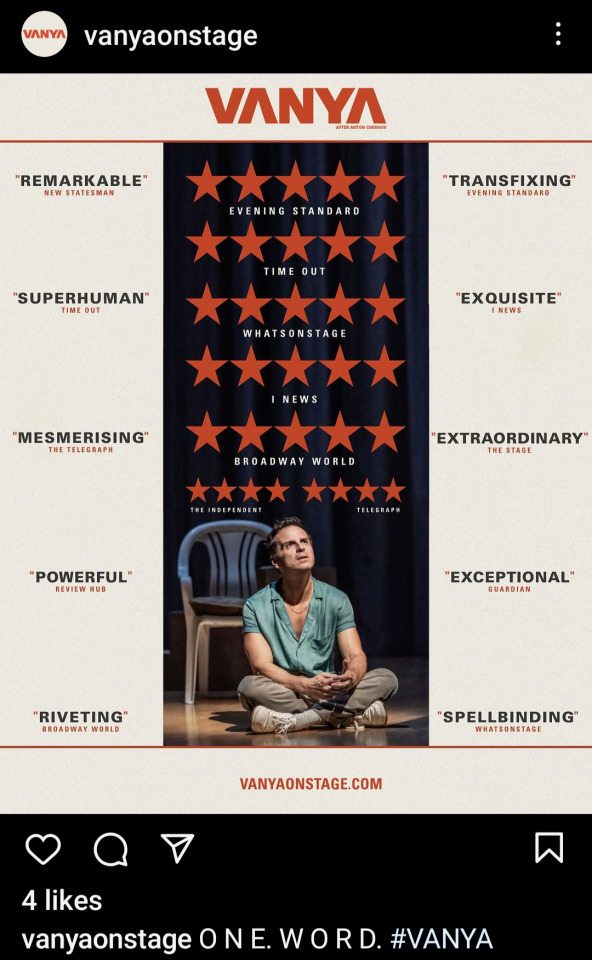
23 notes
·
View notes
Text

74. Vanya on 42nd Street (Louis Malle, 1994)
Captures the volatility and immediacy of live performance with an emphasis on the freedom and discovery of rehearsal, seeing a group of immensely skilled actors tackle famously rich and messy material that has been interpreted thousands of times over and still manage to find something new and unexpected within it. The blurring between theater and film is inspired, though is so delicate and economical that I found myself wishing there were more formal breaks, bolder choices that would make it feel more filmic and less like a mere curiosity or experiment. Rating: 8.5/10
#Vanya on 42nd Street#Louis Malle#Mini Reviews#Julianne running circles around everyone else of course
2 notes
·
View notes
Text
Favourite Theatre Shows of 2023
My Favourite Theatre Shows of 2023
It’s hard to believe it’s that time of year again, when I look back at my theatregoing year and look forward to the year to come (that’s coming soon in another post). Although 2023 has seen me see more shows than last year, I’ve still only seen about a third of the shows I’d see pre-lockdowns. I’m slowly getting back in the routine of planning ahead and booking theatre (which is something I’d…

View On WordPress
#A Little Life#A Streetcar Named Desire#Dear England#Groundhog Day#Macbeth#Next To Normal#Review#Standing At The Sky&039;s Edge#Stranger Things#Sunset Blvd.#The Curious Case of Benjamin Button#The Motive and the Cue#Theatre#Theatre 2023#Theatre review#Vanya
4 notes
·
View notes
Text
'Skywalkers: A Love Story' Review - Fascinating and Fatuous
"Skywalkers: A Love Story" delves into the daring lives of Angela Nikolau and Vanya Beerkus, who risk it all for fame and thrill. This Netflix documentary captures their dangerous exploits atop the world's 2nd tallest building.
⭐⭐⭐ Rating: 3 out of 5. Sneha Jaiswal (Twitter | Instagram) A couple that illegally scales tall buildings, perching on cranes, spires, belltowers, and ledges at heights where one wrong step could lead to death—sounds both extremely exciting and incredibly stupid! But Angela Nikolau and Ivan “Vanya” Beerkus refuse to admit they are adrenaline junkies, preferring to call themselves “artists.”…
#Angela Nikolau#couple who scaled Malaysia’s Merdeka 118#documentary#Ivan Beerkus documentary#Ivan Vanya Beerkus#Malaysia Merdeka 118#netflix documentary#Reviews#rooftopping#rooftopping documentary#Skywalkers: A Love Story documentary review#Skywalkers: A Love Story Review#Social media
0 notes
Text
NTL『ワーニャ』感想
サイモン・スティーブンスが?『ワーニャ伯父さん』を翻案??アンドルー・スコットの一人芝居で???気になる!!!と、上演告知の第一報を聞いた瞬間から思っていたので、ナショナル・シアター・ライブで見ることができて感無量だった。
NTL『ワーニャ』は、人名や設定を変更して、若干モダナイズしている。かつての勢いを失った老年の映画監督アレクサンダー(元はアレクサンドル)は、若く美しく聡明な後妻ヘレン(エレーナ)を連れて、田舎の屋敷に戻っている。屋敷はアレクサンダーの前妻アンナ(ヴェーラ)が受け継いだもので、今はアンナの兄アイヴァン(ワーニャ)とアンナとアレクサンダーの娘ソニア(ソーニャ)が管理している。アイヴァンは、かつて崇拝していたアレクサンダーに今では幻滅し、自暴自棄になっている。ヘレナに惹かれてはいるが、ひねくれた態度しか取れない。痛風に悩むアレクサンダーのために医者のマイケル(アーストロフ)が度々往診に来る。ソニアはマイケルに恋しているが、彼の目的はヘレナであり、ヘレナもマイケルに惹かれている。都会暮らしに未練を残すアレクサンダーは屋敷を売ろうと放言する。搾取され続けていることに我慢ならなくなったアイヴァンは、アレクサンダーを銃殺しようとするが、弾は外れる。殺人すら成し遂げられない自身にアイヴァンは愕然とする。ソニアは恋に破れ、ヘレナは都会に戻るアレクサンダーについて屋敷を去ることに決める。アイヴァンはマイケルのカバンからモルヒネを盗んで自殺しようとするが、マイケルに嗜められる。モルヒネを無事に取り戻したマイケルは、屋敷にもう近寄らないことを誓う。打ちのめされているアイヴァンを、ソニアは慰め励ます。
一人で『ワーニャ伯父さん』をどうやって???とは報道を聞いた時から思っていたし、幕開け早々のマイケルと乳母モーリーン(マリーナ)の会話あたりは、見方のチャンネルを合わせることができず、(この状態がずっと続くなら辛いな…)と思ったことは否定しない。
しかしそのうち、一人芝居という手法を踏まえて遊び始めたあたりから、俄然面白くなっていった。たとえば、地主のリアム(イリヤ)初登場時に「ずっといたんだけどね」と一言こぼすのだが、これはリアムの存在感のなさを示す意味にとどまらない。このセリフから、この舞台での俳優アンドルー・スコットは霊媒師のような役割で、劇の流れの中でキャラクターのセリフや表情、身体をキャッチして表出させており、キャラクターはただ見えないだけでそこかしこに蠢いているという理屈が見えてくる。
またこのプロダクションは、一人芝居に励む俳優アンドルー・スコットを、ピアノととしても描いていたように思われる。アンドルー・スコットの身体から現れない唯一の登場人物が、アイヴァンの妹アンナである。屋敷に置かれたピアノは、普段は誰も近寄らない。しかし時々、弾き手の��ない状態でピアノのが奏でられる。肉体を喪ったアンナの声を宿す霊媒のようにである。確かに、ピアノは複数のメロディを同時に奏でることができ、時に美しく響き、時に衝突して齟齬をきたす楽器である。この意味で、霊媒師として立ち回り複数のキャラクターを発露する俳優アンドルー・スコットの身体は、めちゃくちゃに演奏される一台のピアノとも言えるだろう。
劇が進むにつれて、アンドルー・スコットの身体が二人のキャラクターが同時に宿しているようにも見える瞬間が増えていく。ヘレナとマイケルの情事の場面はわかりやすいだろう。二人が見つめ合う時に、手はヘレナとして動き、マイケルである顔に触れていた。正直滑稽である。しかし同時に、真に迫ってくるように感じた。『ワーニャ伯父さん』の登場人物たちは、過去に耽溺できず未来も見えず、停滞の中で時を重ね続けている。そんな状態からの一瞬の逸脱として提示されるヘレナとマイケルの情事は、スムースに動こうとしても叶わない滑稽でみっともないものとして描かれることに意義があるのかもしれない。
また、劇の終盤でマイケルが屋敷を去る時に、瓶に8分の1ほど残っていたウォッカを一息で飲み干すのだが、マイケルを演じるアンドルー・スコットの身体に、どこかその姿を見守るソニアの姿も重なっているように思われた。確か、この時ソニアは舞台上にはいない設定であったはずなのにもかかわらず、である(記憶が少々薄れているので、断言できないが)。鬱屈を飲み込み、後悔や失望で内側が焼けるように痛んでも、その痛みを燃料に生きていこうとする点で、この時のマイケルとソニアは似たもの同士であったと言える。だからこそ、ウォッカを飲み干しながら、いつもは気だるげに表現されていた目を見開き、天井をキッと見つめるマイケルの顔に、そんなマイケルを見つめるソニアの顔がよぎるようであった。アンドルー・スコットの身体を舞台に、マイケルとソニアの接近と別れが演じられているようであった。
一人芝居『ワーニャ伯父さん』という仕掛けの奇抜さが先に立っているプロダクションであることは確かだが、その仕掛けの必然性が作品から引き出されている点で評価できると感じた。
0 notes
Text
“There are only so many books on Ukraine we can review each month,” an editor from a major British newspaper tells me at one of the country’s largest literary festivals. He looks a bit uncomfortable, almost apologetic. He wants me to understand that if it were up to him, he’d review a book on Ukraine every day, but that’s just not how the industry works.
Since the start of Russia’s full-scale invasion, I’ve had a glimpse into how several industries work: Publishing, journalism, and the broader world of culture, including galleries and museums. Even before the big war, I knew more than I wanted to about how academia works (or rather doesn’t) when it comes to Ukraine. A common thread among all these fields is the limited attention they allocate to countries that do not occupy a place among the traditional big players of imperial politics.
Cultural imperialism lives on, even if its carriers often proclaim anti-colonial slogans. It thrives in gate-keeping, with editors and academics mistrusting voices that don’t sound like those higher up the ladder, while platforming those who have habitually been accepted as authoritative. “We’ve done Ukraine already” is a frequent response whenever you pitch an idea, text, or public event centering the country.
The editor who can’t keep publishing reviews of Ukraine-related books walks away, and I pick up a copy of one of the UK’s most prominent literary magazines to see their book recommendations. Out of a handful of reviews, three are on recent books about Russia. It seems like the space afforded to Russia remains unlimited. I close the publication to keep my blood pressure down.
Keeping my blood pressure down, however, is challenging. When my social media feeds aren’t advertising another production of Uncle Vanya, they’re urging me to splash out on opera tickets for Eugene Onegin. What happened to the dreaded “cancelling” of Russian culture? The Russia section in most bookshops I visit in the UK is growing daily with everything from yet another translation of Dostoevsky to accounts of opposition figures killed or imprisoned by the Kremlin.
The international media focus on the August 2024 release of Russian political prisoners was yet another example of how the more things change, the more they stay the same. While these released prisoners were provided with a global media platform to call for an end to “unfair” sanctions on “ordinary Russians,” there was no mention of the thousands of Ukrainian civilians who continue to languish in Russian jails.
The ongoing international emphasis on all things Russian goes hand in hand with a reluctance to transform growing interest in Ukraine into meaningful structural changes in how the country is perceived, reported on, and understood. Although there has been some improvement in knowledge about Ukraine since 2022, the move is essentially from having no understanding to having a superficial grasp.
Each time I read a piece on Ukraine by someone not well-versed in the country’s history and politics, my heart sinks. The chances are it will recycle historical cliches, repeat Kremlin propaganda about Russophone Ukrainians, or generalize about regional differences. And to add insult to injury, such articles also often misspell at least one family or place name, using outdated Russian transliterations. A quick Google search or a message to an actual Ukrainian could prevent these errors and save the author from looking foolish. Yet aiding this kind of colonial complacency seems to bother neither the authors nor the editors involved.
I often wonder what would happen if I wrote a piece on British or US politics and misspelt the names of historical figures, towns, and cities. How likely would I be to get it published? And yet the same standards do not apply when it comes to writing about countries that have not been granted priority status in our mental hierarchies of the world. We can misspell them all we like; no one will notice anyway. Apart from the people from those countries, of course. And when an exasperated Ukrainian writes to complain, I can almost see the editors rolling their eyes and thinking, “What does this perpetually frustrated nation want now? We’ve done Ukraine. Why are they never satisfied?”
It is not enough to simply “do Ukraine” by reviewing one book on the war, especially if it’s by a Western journalist rather than a Ukraine-based author. It’s not enough to host one exhibition, particularly if it is by an artist or photographer who only spent a few weeks in the country. Quickly putting together a panel on Russia’s war in response to a major development at the front and adding a sole Ukrainian voice at the last minute doesn’t cut it either. This box-ticking approach is unhelpful and insulting.
It is important to acknowledge that some Western media outlets have significantly enhanced their coverage of Ukraine over the past two and a half years. They have typically done so by dedicating time and resources to having in-house experts who have either reported from Ukraine for many years, or who are committed to deepening their knowledge enough to produce high-quality analysis. However, many of these outlets still seem compelled to provide platforms for individuals entirely unqualified to analyse the region. Surely this isn’t what balance means?
Since February 2022, more than 100 Ukrainian cultural figures have been killed in the war. According to the Ukrainian Ministry of Culture, by May 2024, over 2,000 cultural institutions had been damaged or destroyed. This includes 711 libraries, 116 museums and galleries, and 37 theatres, cinemas, and concert halls. In May 2024, Russia bombed Factor Druk, the country’s biggest printing house.
When I attended this year’s Kyiv Book Arsenal, Ukraine’s largest literary festival, each panel began with a minute of silence to honor the memory of colleagues killed in the war. All this is in addition to mounting military losses, many of whom are yesterday’s civilians, including journalists and creatives who have either volunteered or been drafted into the army. This is the current state of the Ukrainian creative industry.
To save time for Western editors, publishers, and curators, let me clarify what all of us perpetually frustrated Ukrainians want. We would appreciate it if they turned to actual Ukraine specialists when working on Ukraine-related themes. Not those who suddenly pivoted from specializing in Russia, or who feel entitled to speak authoritatively because they discovered a distant Ukrainian ancestor, or those who have only recently shown interest in Ukraine due to business opportunities in the country’s reconstruction. We would be grateful if they took the time to seek out experts who have been studying Ukraine long before it became fashionable, who understand the country in all its complexity, and who care enough to offer Ukrainians the basic dignity of having their names spelt correctly.
I like to fantasise about a time when editors of top Western periodicals will choose to review books on Ukraine not simply because the country is at war and they feel obliged to cover it now and again, but because these books offer vital insights into democracy, the fight for freedom, or the importance of maintaining unity and a sense of humor in times of crisis. I hope for a day when galleries will host exhibitions of Ukrainian art, not just because it was rescued from a war zone, but because the artists involved provide fresh perspectives on the world.
I also dream that we, the perpetually frustrated Ukraine specialists, will eventually be able to focus on our own scholarship and creativity rather than correcting the mistakes and misleading takes of others. This will happen when cultural institutions, publishing houses, universities, and newspapers acquire in-house experts whose knowledge of Ukraine and the wider region extends beyond Russia.
Dr Olesya Khromeychuk is a historian and writer. She is the author of The Death of a Soldier Told by His Sister (2022). Khromeychuk has written for The New York Times, The New York Review of Books, The Guardian, Der Spiegel, Prospect, and The New Statesman, and has delivered a TED talk on What the World Can Learn From Ukraine’s Fight for Democracy. She has taught the history of East-Central Europe at several British universities and is currently the Director of the Ukrainian Institute London.
133 notes
·
View notes
Text

a story by @rox-and-prose and @cipheramnesia
Part 8: Vigil
"I am not prone to long speeches," Vanya Steyr had said, welcoming the incoming new hires to the G1 Major Treaty Enforcement Central orientation day. Maryam had thought they seemed very impressive, perhaps evem dangerous.
"You will learn all the information you need to start your jobs here. You will not learn one right way to do your jobs until you are in the middle of them." They had stood at the front of a sizable auditorium, and had not used any amplification. Maryam remembered even after the subsequent weeks of stultifying bureaucratic form memorization and procedural filing specific to Major Treaties, the departments, grades, fire safety, system safety, and so on.
Years of experience, climbing the ranks, passing pilot exams and system plotting. All of it each time seemed like the most information she could hope to retain, Vanya stuck with her. "When you are doing this work, at all levels," they said, "remember why we have major treaties. They are to protect us, earth and her civilization, wherever we may find ourselves. We protect ourselves from destroying ourselves, because it is our nature."
That was the most of Vany Steyr she had ever seen outside of the odd sysnet photo or short interview up until they took a personal interest in the Charybdis WMD case. Following Steyr's system jumps in the Marzanna, a ship that by what few specs she'd had the chance to glimpse was perhaps hundreds or thousands of times more dangerous than any WMD case she'd worked or reviewed, she worried over "it is our nature."
Maryam had always operated with the consideration that it was in the nature of everyone from earth civilization to protect themselves. This idea had given her comfort and guidance in her cases and the vast organized network of central bureaucracy. The scope of civilization, she sometimes pretended, was possible to see as one vastly extended process to keep its many inhabitants or societies safe. It drove fear and love and hate and hope and all those things.
She knew it was an oversimplification, but it gave her a place to start when she wasn't sure. The one possibility she'd never entertained until now was that Steyr had never meant it was in the nature of civilization to protect itself.
Trevor remained intensely focused in pulling the Lev Nitoburg off the map for the Marzanna's deep spacers. Maryam had no idea what was ever going on with the woman. Serah looked worried, maybe a little bit pale. It had been one thing to figure out Kan was spying for the boss, quite another to decide the boss was violating the most basic rule in civilation, while it happened right in front of their eyes.
Minutes ticked away between the system resolutions. Serah caught Maryam looking and gave a sick smile. She got up and went back to Serah, crouching by her chair. "Serah," she said.
"Hey," Serah said.
"There is no need worry so dearly," Maryam said. "This is the type of case we have all the time. It is nothing, a piece of cake."
"You're awful at lying."
"I am. But you have seen more of the Marzanna specifications than myself. Would you consider it falling within regulations? Would the Lev Nitoburg?"
"No... and... it's pushing it, toeing the letter of the treaty..."
"So it goes," Maryam said. "I only know I am of the belief that we owe it to our civilization to safeguard the treaty against WMD's, even if they are of our own invention."
"You're probably right." Serah looked at her screen. "Did you know that thing can project an artificial stellar gravity well?"
"I had some sense but I did not realize the extent of it."
"It could probably pull some planets apart. Maybe even destroy a sun, if you used it right." Serah's face was grim.
Maryam took one of Serah's hands in two of hers. Serah squeezed. "We are making the right choice." She squeezed back.
"We gotta be. Nothing but the right choice could ever feel this dumb."
75 notes
·
View notes
Text
The reviews are in, and the verdict is that Jimmy kicks ass. The Guardian calls his Vanya “scathing, near-deranged” 😍

The reviewer (Mark Lawson) cried! And he says he never cries! God I wish I could see it.
89 notes
·
View notes
Text
2023 Year in Review: Jenna Coleman public appearances
1. Lemons Lemons Lemons Lemons Lemons press night
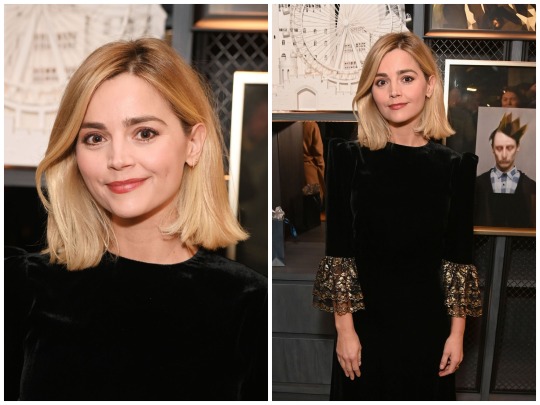
2. Finch and Chanel pre-BAFTA party
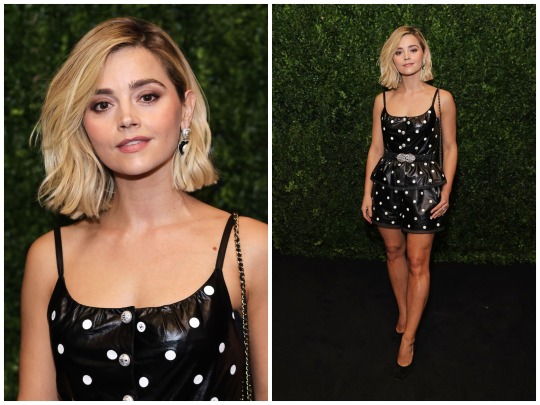
3. Royal Horticultural Society gala
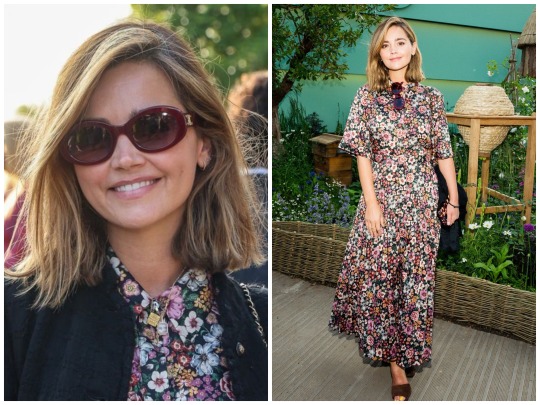
4. Chanel dinner

5. Nuclear Children premiere
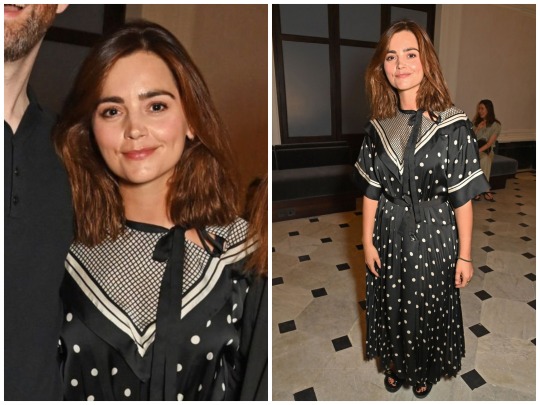
6. Veronica Beard summer party

7. Chanel show at the Paris fashion week

8. Wimbledon

9. Armani dinner in Venice
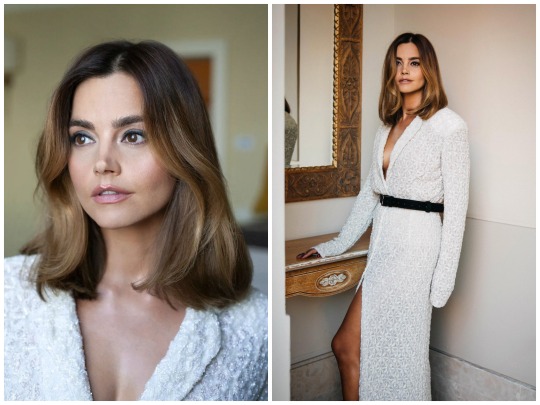
10. Armani fashion show in Venice

11. Miu Miu Women's Tales in Venice

12. BGC charity day
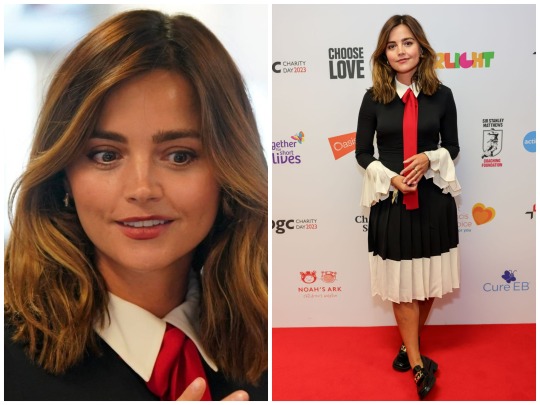
13. V&A museum dinner

14. ATG summer party
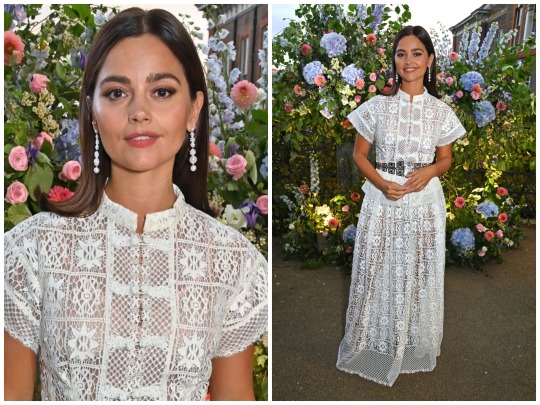
15. Vogue World
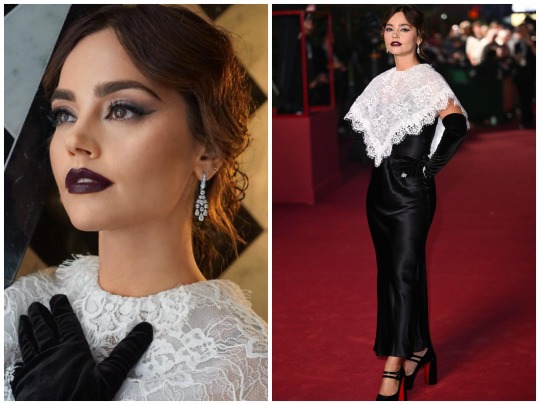
16. JW Anderson fashion show at the London fashion week
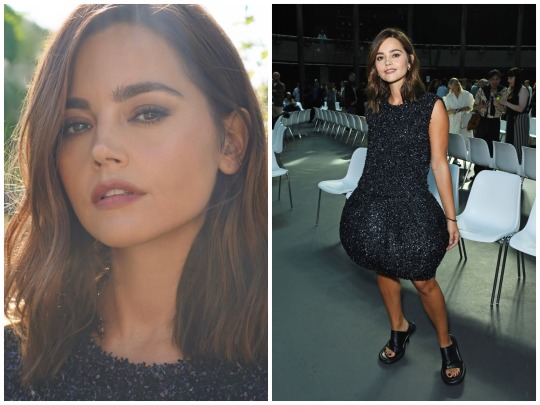
17. Vanya premiere
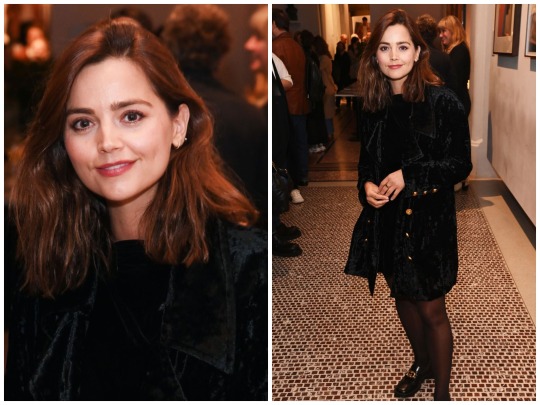
18. Evening Standard theatre awards

19. Chanel party in Manchester
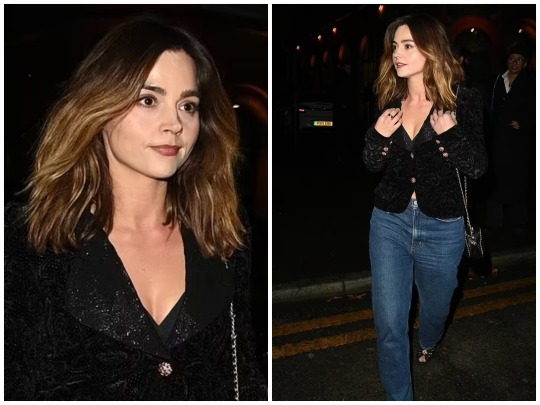
20. Chanel fashion show in Manchester

Which one was your favourite?
#jenna coleman#jenna louise coleman#public appearances#year in review#jenna coleman public appearances#2023#jenna coleman 2023
54 notes
·
View notes
Text
Broadway Divas Tournament: Round 4

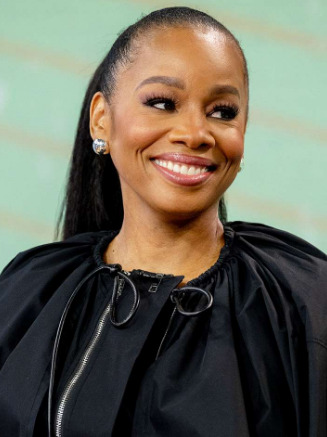
Two-time Tony-winning dancer-extraordinaire Bebe Neuwirth (1958) is best known for her winning role as Velma Kelly in Chicago (1996) alongside her beloved Annie Reinking. After playing Velma off-and-on for some years, she then took on Roxie, and later Matron "Mama" Morton. Bebe has also won for Sweet Charity (1986), and is a two-time Emmy winner for, of course, Lilith in Cheers. Other credits include Here Lies Jenny (2004), Fosse (2001), and Cabaret (2024), which opened to glowing reviews for Bebe, and dismal reviews for basically everything else. In addition to her beloved stage, Bebe is a devoted cat-lover, and activist. She founded the Dancers' Resource program to provide support for injured and/or aging dancers.
Anika Noni Rose (1972) is a Tony-winning actress known for Caroline, or Change (2004), A Raisin in the Sun (2014), and the 2013 first workshop of Hamilton where she originated Angelica Schuyler. She is also known for being one of the iconic Dreamgirls in the 2006 film, as well as the voice of Tiana in Disney's The Princess and the Frog. In 2011, alongside Lea Salonga, she was named a certified, official, Disney Legend. Her latest Broadway show, Uncle Vanya, just opened this past week.
NEW PROPAGANDA AND MEDIA UNDER CUT: ALL POLLS HERE

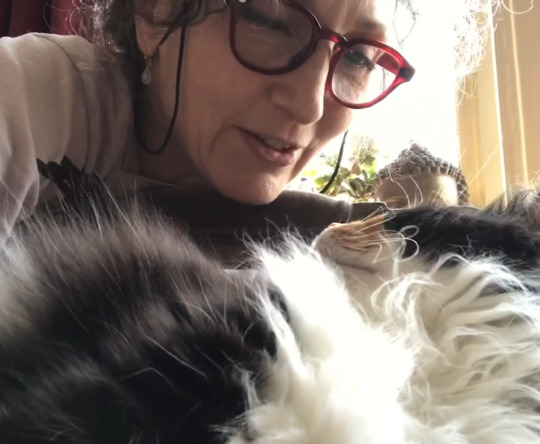

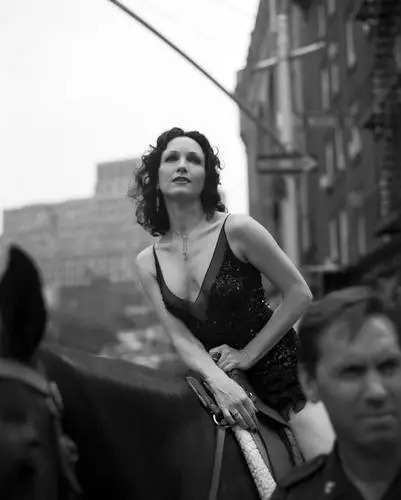
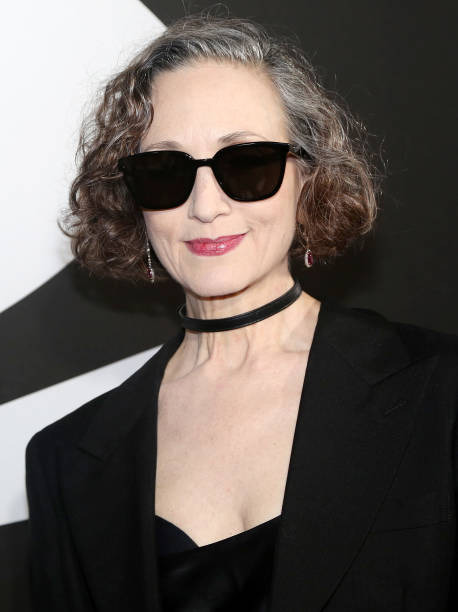
youtube
"Bebe Neuwirth, my beloved, I have at last seen you in Cabaret, and I am so sorry. You deserve a far better production, and a far better show social media team that recognizes your abundant talent and rave reviews. Please continue to post cat photos, because they bring me nothing but joy."
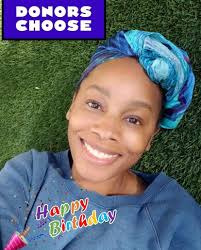
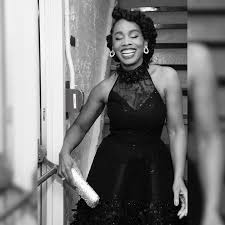

youtube
"Does Anika Noni Rose not have a pet? In my quest to get a photo of every Diva with their animal, she turned up empty, so...that's something. Also, her Vanya revival wasn't well-received, so that's two Divas in this poll in substandard revivals. Woo-hoo."
#broadwaydivastournament#broadway#tournament poll#broadway divas#musical theatre#bebe neuwirth#anika noni rose#round 4#look i tried to get them on the same song wavelength like everyone else but i couldn't locate bebe's “another hundred people” in time
25 notes
·
View notes
Note
I’m so happy that I found Bella and Vanya🥺 Their chemistry is so good on and off the ice and I love the way they skate together. They seem to really care about each other and be best friends and it’s so sweet to witness. I was reading some positive reviews on twitter about their poor things free dance and it made me so happy. I really think both of their new dances are so good and they are just going to skate them and make them better as days, weeks and months go by. I think this is gonna be a great year for them :,) and they’re gonna achieve more than they did last year! Im so excited and happy for them and ready to watch their journey as it continues.
🤍
11 notes
·
View notes
Text
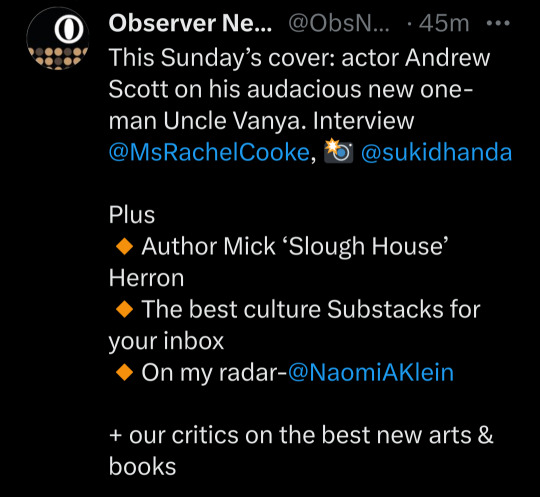
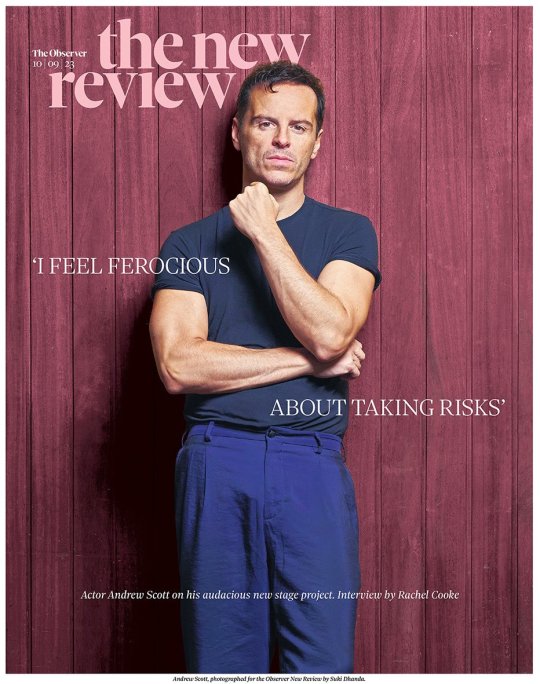
Glad we're getting some press for Vanya soon.
26 notes
·
View notes
Text
The Umbrella Academy S4: Review and Thoughts--Not Spoiler Free
Okay, I told myself I wasn't going to binge this final season, but I did....so, yeah.

This gif is honestly how I feel at the moment...which is uncertain, but I did not like the ending all that much. If you haven't caught up, do not read as this is NOT SPOILER FREE. In this, I am going to be mentioning favorite moments as well as touching on the stuff I liked and disliked about the characters this season. So, I will say that this season had a lot of good moments, lots of moments that made me laugh. And maybe I am strange individual, but the part where they all ingested (sans Klaus) the marigold and got ill was probably one of my favorite few scenes...I don't know why, don't ask. The road trip scenes in general just had me laughing like a hyena, I freaking loved it! The scene of Five and Lila time jumping to try and save Ben from dying as a teen and they end up meeting the Phoenix Academy---so cool as we briefly got to see one of the Sparrows and a new kid that could shoot fire from his hands. It was super short, but whatever. The fight of Luther and Diego vs the CIA was funny, even funnier considering that they were both wearing rip away suits. We got to see some good brotherly moments between Luther and Diego, which is nice because normally the two of them are butting heads with one another. I love the fact that Luther became a stripper--oh, excuse me, "professional dancer" as he dubs it. Even when he was dancing after he got his hairy ape like body back, I would still have watched. Just love his energy all around--very golden retriever energy.

Diego and Lila together grew on me in the previous season, and I like that they didn't sugar coat their lives as being amazing now that they have a family and many obligations and responsibilities. I found it kind of funny how they hinted that Diego had weight gain since his kids, but with the one scene with his shirt off, he certainly does not look fat at all. And like in a previous season, we got to see some cool bullet trajectory manipulation. But Diego, honey, no mustache, please. Allison was Allison....she's never been my favorite. I did enjoy Claire and Klaus and their relationship with one another, though. And I totally understand why Klaus became so afraid of everything around him--no longer being immortal would do that to people. The bit with Klaus and his drug dealer seemed to veer slightly off course if you ask me, and the bit of him being stuck in that grave....yikes, trauma galore. At least Thunderbolt was a nice ghost doggy. I like that in this season Viktor speaks up for himself and butts into conversations to make himself heard. It is very different compared to Vanya in season one or young Vanya. i also like seeing the more frequent usage of his powers. Very cool imo. And unlike the others, Viktor seemed to be the only one that truly stayed on the "gotta find Ben" task. Ben....sweet adorable Ben in season one and two is obviously different from season three Ben. Sparrow Ben, I like him, but I think I prefer Umbrella Ben, just because he seems so much more pure. Sparrow Ben seems so mischievous, and overly stubborn as he would not listen to Viktor. But I guess that that was "The Cleanse" working through his and Jennifer's systems.

Five still is tied for being my top favorite character. Compared to in a previous season where he and Diego had a lot of good, brotherly moments, these two are butting heads a lot towards the end. Going as far as to focus on fighting one another while there is a giant monster about to suck them out of existence. I would have preferred more friendly brotherly dynamics, but I mean, they are a dysfunctional family....so that didn't disappoint. Personally, I do not like the whole Five/Lila thing they had going on, but I mean...I understand why it formed in the first place. Seven years together on a magical subway will form bonds. But also, not including the time that Five was working for the Commission, Lila was probably the first person he got into a relationship with--Delores does not count considering she is a mannequin, so I could understand his want for human connection and happiness. The bits of them in the greenhouse I really like those scenes. Lila looks really pretty and at one point Five is wearing this sweater that is such a nice color. But compared to the first season, you can just tell how done Five is with everything--that bit in the deli showed that. Also with him just disappearing at the worst time possible during the cleanse. So...they all died in the end...so all the branch timelines were erased. At the end scene, we get to see cameos of past characters from past seasons, unless my eyes are deceiving me. It starts with seeing Lila's family and Claire, but then it focuses on three men playing frisbee...the Swedes, I think so. You also see Agnes, the donut lady. Herb and Dot from the Commission. Grace and Sloane (?) also show up in there too. I could be mistaken people's identity or just seeing thins--let me know if I am wrong. I mean, this is kind of how I would have wanted the 100 to end--everyone dies at the end. And I guess it was fitting---idk if it was accurate to the comics since I haven't caught up with them. Let me know if it was!

The cast did a great job though! I seriously love all the actors/actresses of this show! I am going to stop writing now as this is getting really long!
#tua#the umbrella academy season 4#tua s4 spoilers#show review#hargreeves family#five hargreeves#klaus hargreeves#luther hargreeves#diego hargreeves#ben hargreeves#viktor hargreeves#lila hargreeves#ranting#my thoughts#this is long#someone come chat with me about this#please#dysfunctional family#end of the world#final season
7 notes
·
View notes
Text
'Even for an actor as skilled as Andrew Scott, playing a character as infamous as Tom Ripley poses a serious creative challenge. Since the release of Patricia Highsmith’s now canonical 1955 novel The Talented Mr. Ripley, the elusive, murderous grifter has become a fixture in the cultural imagination. He’s headlined multiple novels and movie adaptations — meaning that almost everyone is acquainted with at least one incarnation of Tom Ripley.
Even so, in writer-director Steven Zaillian’s eight-episode miniseries Ripley, the Irish actor manages to deliver the definitive portrayal of the literary schemer — a sociopath who is an expert at self-preservation, a man seemingly driven by overwhelming desire, envy, and greed. As Scott developed his approach to the tight-lipped character, he says it was vital to forget about Tom’s formidable reputation and focus instead on how such a man might realistically move through the world.
“I think what’s gripping about the show is that we see the logic of what he has to do to survive, and each episode leads us in a very particular way,” Scott says. “We spend time with the character when he’s doing these things and [see] how much of an expert he isn’t. Sometimes what he’s really talented at is being able to think really, really quickly.”
Scott clearly knows a thing or two about talent: His was obvious from the moment he began his career on the Irish stage, though global audiences only learned of his gifts when he made his showstopping — and BAFTA Award-winning — television turn as Sherlock Holmes’s brilliant nemesis Moriarty in the BBC hit Sherlock. The actor’s subsequent portrayal of the sensitive (and yes, sexy) priest in the second season of acclaimed series Fleabag then launched him into a new stratosphere of stardom, earning him a Critics Choice Award and two Screen Actors Guild Award nominations. “Particularly in L.A., people just shout, ‘hot priest!’ at you all the time when you’re crossing the street,” Scott says. “It’s extraordinary.”
The Olivier Award-winning actor has further burnished his credentials with singular, riveting work on both stage and screen. Last year alone, he starred in Vanya, an impressive solo adaptation of Chekhov’s Uncle Vanya at London’s venerable Old Vic Theatre, and earned rapturous reviews for his role as a lonely screenwriter in the sensitive and stirring drama All of Us Strangers. Now, Scott’s unforgettable turn in Ripley has critics again raving over the actor, who gives his Tom an eerily placid demeanor that surely conceals an inner raging tumult.
That facade proves indispensable to the character when, in the series, he’s hired to travel to Italy to convince the errant Dickie Greenleaf (Johnny Flynn) to return to New York to helm his father’s company — under the mistaken pretense that Tom is Dickie’s close college friend. Upon arriving in Europe, however, the amoral Tom is staggered by the scion’s privileged, romantic way of life, and disguises his true aims to live for as long as possible in his new host’s shadow.
“One of the reasons that I love the character: He’s got this huge appreciation for art and Italy and food and culture and nature,” Scott says. “I think that’s something that the other characters take for granted. I was just seeing his appreciation for life and the arts. He’s never been exposed to that kind of beauty before.”
Krista Smith: Ripley is so gorgeous — it just washes over you. It’s my favorite kind of viewing experience, where I’m rooting for the sociopath at the same time I’m terrified of him.
Andrew Scott: Steven Zaillian has done a great job of replicating what Patricia Highsmith herself did, which is to make you root for somebody who’s doing these terrible things. The big challenge for me was to make the audience feel what it’s like to be Tom Ripley rather than to be a victim of Tom Ripley. That’s quite an unusual thing to surf because I’m required to love him, protect him in the way you do with all your characters. But it’s difficult with Tom because, even in beginning to talk about the character, I have to protect his secrets a little bit. You don’t want to overexplain him too much.
That’s especially difficult when the camera is trained on your face for eight full episodes, I would imagine.
AS: Yeah, that was challenging. I don’t feel like there could be a bigger part on television than Tom Ripley because he’s just there the whole time. He’s a loner character [so the question is]: How are you able to convey what he’s feeling without a lot of talking and not a lot of deep relationships? It’s quite rare for a limited series like this to focus so much on one character. And as an actor, it’s quite an unusual thing to do.
It was challenging to be with somebody who’s quite opaque as a character, to spend so much time with him. There was an awful lot of internal work, but it’s such a great privilege to get to play this character.
It’s fascinating to watch how Tom is viewed by both Dickie and his girlfriend Marge, played so marvelously by Dakota Fanning. So much tension and jealousy and suspicion develops among them. What was it like to work through all of that with Johnny Flynn and with Dakota?
AS: Johnny is an absolutely gorgeous, warm person and with Dickie [and Tom], there’s a sort of love between those two characters that we were reluctant to define too much — whether it’s romantic love or whether Tom wants to just occupy his space. To me, their [scenes together are] love scenes in a way because if you don’t have love at the heart of it, we don’t fully understand why Tom does what he does and why he’s so enamored by Dickie. Marge, she’s suspicious of Tom. We had really good chemistry, Dakota and I, and we enjoyed the scenes because we have to do so much without saying anything. We have to sort of say, “I cannot bear you,” but do it with a smile.
You shot in some of the most amazing locations. Italy itself is really a character here. How did physically being in those breathtaking environments fuel your performance?
AS: We shot in Venice during the pandemic — when I think about it, it lent a real feeling to me and to the character because I did feel isolated. I [remember] walking to the set through Piazza San Marco [in Venice at] six-thirty or seven in the morning. It was so extraordinary because this would usually be one of the [busiest] tourist spots in the world, and it was completely empty. It was unique, and sometimes quite sad in some ways. But you find your joy. We went to so many different places — Capri, Palermo, the Amalfi Coast. And we shot in a place called Atrani, which is the tiniest village. The experience of being in Italy, particularly on the coast, it’s sort of transfixing. You’re walking up these incredibly steep stairs . . . I love the [scenes with Tom climbing the stairs]. He’s experiencing life for the first time in a completely different way, and his confidence grows really, really quickly.
So, I want to take you back to the early days of your career. You were one of those kids who was shy and maybe did a drama class to see if that might work for you?
AS: Yes, exactly. I used to act a little bit as a kid, not much, just in commercials and little theater things. There’s a myth with actors, that they’re extroverted. I was a really shy boy, and the acting really helped me to sort of overcome that.
Then you go to college and immediately drop out. Why?
AS: When I was about 18, I went to the Abbey Theater in Dublin, which was an incredible learning ground. That’s why I dropped out of college, to go and actually do the thing rather than study the thing. I spent a few years at the National Theatre in Dublin as a really young person — it was extraordinary when I think about it, playing these amazing parts in the Abbey. I moved to London when I was 22, and I was auditioning a lot. It’s a big, big journey. My inspiration has always been good writing. I don’t believe you can make a great film or TV series or play if you don’t have a great script, so that’s where I’ve always gone. That means doing things that maybe don’t hike up your profile; I’m always happy to play supporting parts if the writing is good. So, it’s never been about trying to play leading roles necessarily, but in the past few years, that’s what’s happened.
Can you recall a film or a play that maybe informed who you are now, the kind of actor you became?
AS: When I was 17, I made my first film, which was a tiny Irish film called Korea, and there was an actor in it who was, to use that beautiful expression, a journeyman actor, called Donal Donnelly. He had a huge amount of theater credits and film and television credits but was not a particularly famous actor. What he was was a very kind actor. By looking at him, seeing what way he talks to the crew and what way he talks to the other actors, I learned how to behave on a set. That’s something that I’m always so grateful for.
I love hearing that. So, coming off of this very challenging, very intense production, what’s next? What are you excited to tackle?
AS: I want to do something funny, and I want to be in a musical. I’d love to be in a really well-written rom-com. I’m putting that out there and sort of hoping that manifests in some way. I had to sing onstage for the first time in Vanya, in a very small way, but I really loved it. It’s extraordinary to sing, isn’t it? It’s about confidence and it’s about really listening.'
#Andrew Scott#Netflix#Ripley#Dakota Fanning#Johnny Flynn#Korea#Abbey Theatre#BAFTA#Moriarty#Sherlock#Amalfi Coast#Patricia Highsmith#The Talented Mr Ripley#Steven Zaillian#Hot Priest#Fleabag#Old Vic Theatre#Vanya#Atrani#National Theatre#Donal Donnelly#Chekhov#SAG Awards#Critics Choice Awards#Venice#Palermo
7 notes
·
View notes